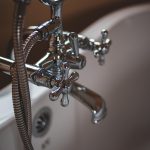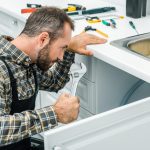Emergency Plumbing
What is Emergency Plumbing?
Emergency plumbing refers specifically to the immediate and urgent requirement for professional plumbing services in unexpected situations. The types of emergencies include blocked drains, burst pipes and leaky faucets, to massive sewer line backups as well as overflowing toilets. If you are faced with an emergency, it is crucial to be able to access an efficient and reliable emergency plumbing services.
Why is Emergency Plumbing Important?
Emergency plumbing services play an crucial role in ensuring health and safety of commercial and residential properties. The quick resolution of these issues will prevent further damage such as water leaks, structural issues as well as mold growth and potential health hazards. Quick intervention by trained professionals could help save you from massive repair costs and inconvenience over the long term.
How Emergency Plumbing Relates to Our Business
At St George 24 Hour Plumber, we understand the stress and urgency associated with plumbing emergencies. This is why we offer reliable emergency plumbing services specifically designed to give you quick solutions when you require them the most. Our team of highly skilled plumbers is on call round all hours of the day ready to take on any plumbing problem that may occur.
What are the most important lessons to be learned from this article?
- Plumbing emergencies address urgent and immediate plumbing requirements.
- Swift intervention helps avoid further damage and costly repairs.
- Reliable emergency plumbing services are vital for commercial as well as residential buildings.
- St George 24 Hour Plumber provides dependable emergency plumbing solutions 24/7.
Additional Information
Managing Plumbing Disasters: How to Stay Prepared and React Effectively
Emergencies in plumbing can happen at any time and cause a significant amount in damage to the home if not handled promptly. It is vital to be aware of what you can do in the event of a plumbing emergency, to mitigate the damage and avoid recurring issues.
Don't Freak Out: What to Do When Your Hot Water System Malfunctions
Hot water is vital in our daily lives for various purposes, including showering, cooking, and even cleaning. It's easy to take drinking hot water as a given until the hot water system malfunctions.
Why Hiring a Professional Plumber Offers The Value of Skilled Plumbing Explained
Plumbing issues are common for every home and can lead to lots of hassle and harm if they are not dealt with correctly. While some may try to solve plumbing issues on their own, it is essential to hire a professional plumber to prevent making the situation worse.
Plumbing Services That Never Sleeps: The Convenience of After-Hours Plumbing Services
24-hour plumbing services are vital for homeowners and businesses alike. Emergencies can strike at any moment, and having access to 24-hour plumbing services can mean the difference between a minor problem and a catastrophe.
A Homeowner's Guide to Plumbing Emergencies: What to Look for and When to Get in Touch with St George 24 Hour Plumber in St George
Plumbing emergencies can be the worst nightmare for homeowners. Pipes that burst, blocked drains or fixtures that leak, as well as gas leaks could cause significant damage to your property and put the safety of your family at risk.
The Advantages of Employing a Skilled Plumber for a Backed-up Drain
Clogged drains are a common plumbing issue that can lead to problems and even health dangers If not treated promptly. In this article, we will examine the symptoms of a drain that is blocked and DIY solutions to unblock the drain, when you should call an plumber and the benefits of hiring an experienced plumber and some tips for prevention.






